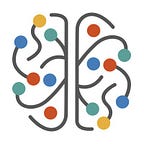Is the Engagement Survey Dead?
This week we’re looking at:
- How the trend to replace annual engagement surveys with pulse surveys is increasing
- How to make sure you’re testing for bias
- How to use AI for continuous learning
Navigating and understanding the complex and expanding HR AI technology market is harder than ever.
Voice of the Employee
Is it time to toss out your old employee engagement survey?
According to research by Gartner, more and more companies are now using small-scale pulse surveys to measure employee engagement and the use of formal large-scale surveys has reduced.
Some organisations are applying VoC (Voice of the Customer) concepts and services (such as social network analysis, sentiment analysis and social recognition and feedback channels) to gather additional insight around employee opinions, behaviors and attitudes and produce a more holistic voice of the employee (VoE). Techniques such as natural language processing (NLP), semantic analysis, and machine learning are among the tools used by companies to deal with the large volumes of written or unstructured data that VoC concepts produce.
Bias in Recruitment
Taking a legal perspective, this article looks at some of the issues that HR professionals should be aware of when considering using algorithms and machine learning for selection in recruitment. Discrimination by technology is not always as evident or obvious as you might think. For example, one recruiting tool started to filter out applicants with a long commute time, as it had predicted that they would resign sooner than applicants with short commutes.
However, this meant that the tool was inadvertently discriminating against ethic minorities that were based in suburbs of big cities and therefore lived further away from the office. The article recommends working with developers and testing thoroughly before deploying algorithms to identify and correct potential discrimination.
How Can AI Impact HR?
Learn how AI is impacting HR and what the best companies are doing
One area we are very excited about at CognitionX is the potential for chatbots to help HR with candidate management and employee queries. Click here to buy our latest research on the key chatbot vendors in the market and read real case studies on how companies are using chatbots in their organisations to support HR and recruitment processes. £195+VAT for one download, £995+VAT for 10.
Continuous Learning
Five ways AI will enable lifelong learning and transform the workplace
Beyond the tabloid hyperbole, it is important to recognise that artificial intelligence-driven automation means that the pace at which workers’ skills and knowledge will become obsolete is going to accelerate. As a result, ‘always-on’ continuous learning will become increasingly critical.
There is an air of serendipity in the fact that, while AI is the root cause of this disruption, it is also the solution for navigating it. AI is working to help employees keep up with changing skills and demands by providing personalised learning journeys, creative ways to learn, and access to high quality content.
Decentralised Skills Data
People Analytics & addressing the future skills gap with blockchain
It’s something we hear coming up in the HR space a lot, and that’s about the future skills gap with the ever changing landscape of work/skills and technology. Companies require new skills due to the change in the market, which means a constant challenge to either recruit new people with these new skills or train the people that they already have to address those needs.
Blockchain is seen as a way that we could work towards a digital, standardised set of data on your employees that spans beyond the time spent in your employment. This article talks through some of the benefits from that approach.
